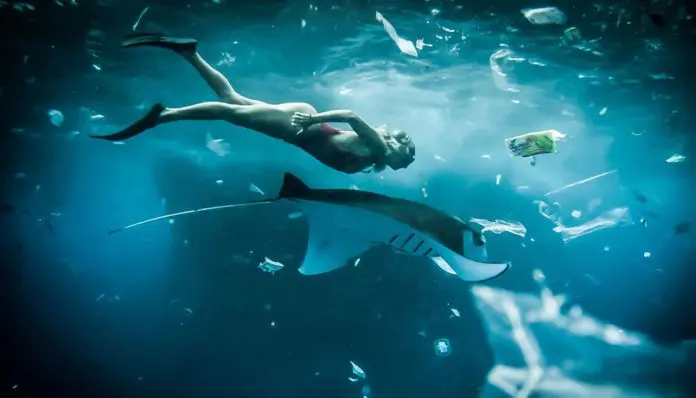With plastic pollution in the world’s oceans getting more and more dire with each passing year, some economic researchers are wondering whether it would be worth setting up some kind of “global fund” to help developing countries pay the cost of improving their waste management systems.
Alistair McIlgorm, a marine economist at the University of Wollongong’s Australian National Centre for Ocean Resources and Security (ANCORS), and ANCORS Researcher Karen Raubenheimer co-authored a study in the Journal of Ocean and Coastal Economics that asks: “Can a global fund help solve the global marine plastic debris problem?”
Not only do developing countries need money to improve their waste management systems to bring down the amount of plastics that eventually get to the oceans, McIlgorm and Raubenheimer write in their paper’s abstract:
“Plastics manufacturers and retailers globally must be incentivised to design products for the environment as well as for the collection and end-of-life treatment facilities available within the intended markets. Given the oceans are a global common, we investigate the option of developing a global fund mechanism to progress the necessary actions to reduce plastic waste entering the world’s oceans. This requires consideration of what form a conceptual global fund could take, how contributions will be made to the fund and what the fund would pay for. In the short-term, remediation may be prioritised, but long-term preventive measures must also be considered. Both require funding. A global fund could assist in closing the disparity in available national funds for such activities.
“A conceptual model is proposed that would assess the discharge of solid waste into the global stock of marine plastic debris by each State to determine their contribution to the fund. Some nations will initially be large contributors to the fund, creating incentive to reduce waste entering the oceans in order to reduce these financial contributions. Such a model may be regarded as inherently unfair, presenting issues of capacity and equity. Many developing States would therefore be exempted from financial contributions and be assisted by the fund to address the mismanagement of plastic waste. Alternate methods of determining national contributions to the fund are provided from analogous mechanisms. It is suggested the model may still have merit for determining contributors to the global stock, stimulating policy development and measuring success of the proposed fund outputs.”
Check out the full paper here.

